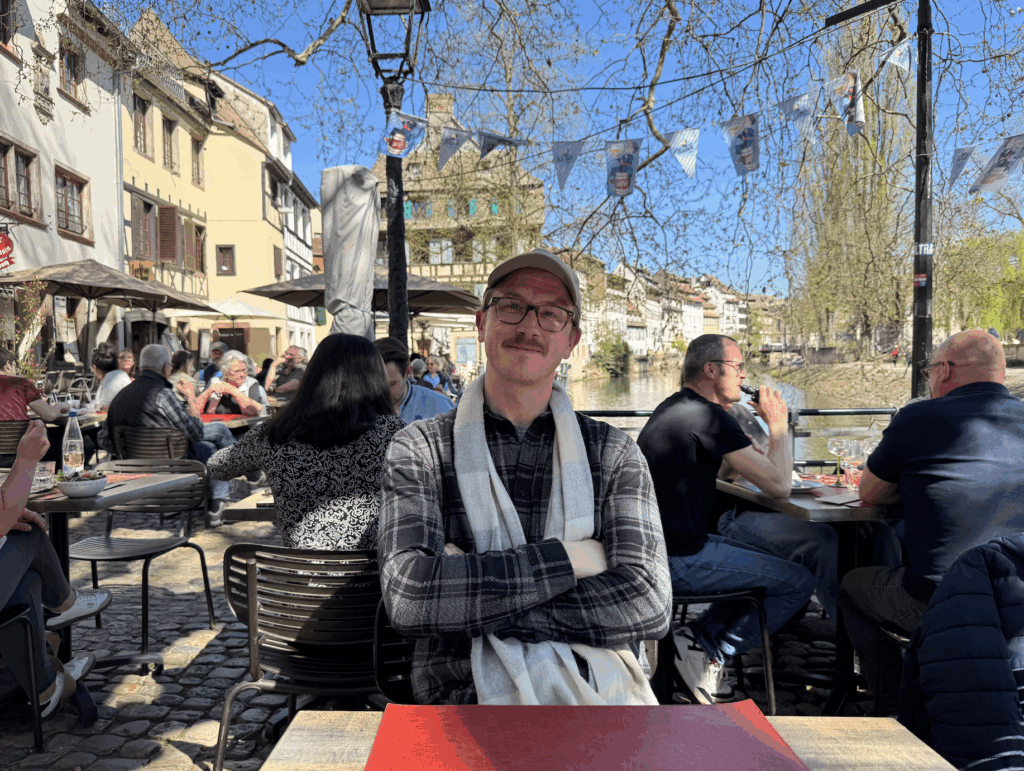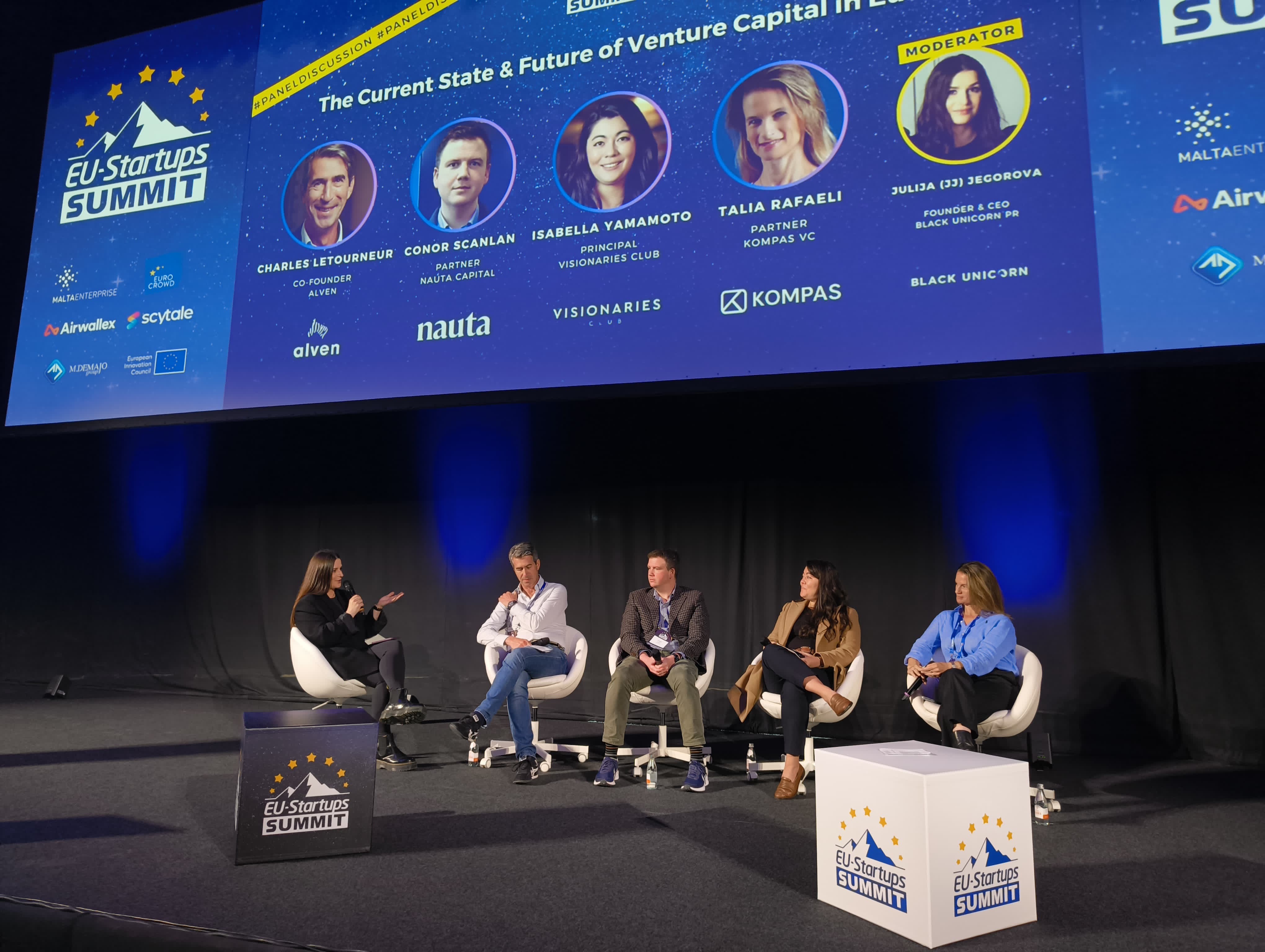This month marks four years since Joe Krasean joined BUPR. In that time, he’s helped put dozens of startups on the media map. We’re talking first-ever launches, fundraising, profiles, podcasts, event speaking and countless moments where a great story found its spotlight.
But if you’re imagining champagne pitches and glamorous press tours, think again. Startup PR is rarely shiny on the surface. It’s a daily hunt for relevance, traction, and trust. Joe has spent the last four years figuring out how to cut through noise, work with journalists (not against them), and help founders find the stories worth telling.
Of course, in true BUPR-fashion, took the opportunity to pick the brain of our very own Joe, as he reflects on the craft of startup PR, shares tough love advice for first-time founders, busts the myth of narrative control, and explains why our team’s “no a**holes” rule still holds up.
PR is called PR for any organisation. But how is PR for startups different?
We usually have to work very hard to earn media attention or to secure any coverage for our clients. It is not at all like PR for the 1%-companies like Apple, where if the CEO rearranges the office, it will get some media coverage. That is a common misconception that PR newbies make – that PR works in the same ways across industries and organizations.
In addition, there are a lot of startups, which means there is a lot of ‘noise’ in the channels for journalists that cover these businesses. How do we distinguish ourselves? How do we make ourselves stand out without being annoying or overly promotional – both are stances that are anathema to journalists. This aspect is key, as startups often have not proven themselves from a business point of view.
But we don’t work exclusively with startups. In fact, some of our clients are listed companies. But all of our clients have this thing in common, which is that we need to work for every placement. PR at this level needs to be sharp and relentless. It’s a daily hunt, and we take every quality win that we can get.
It can feel unglamorous at times, and it can be a bit of a slog. But that’s why you hire us! We fight those battles on your behalf and take care of those headaches. You need to keep plugging away, month after month, racking up the placements and trying to make yourself part of the mix. Eventually you’ve got the first three or four pages of Google news links full with placements that we’ve worked on, a catalogue of thought leadership articles, some appearances at events and podcasts… now, people know your story, identity, who’s behind your company. Your business is now becoming part of ‘The Conversation’. It takes time and careful work.
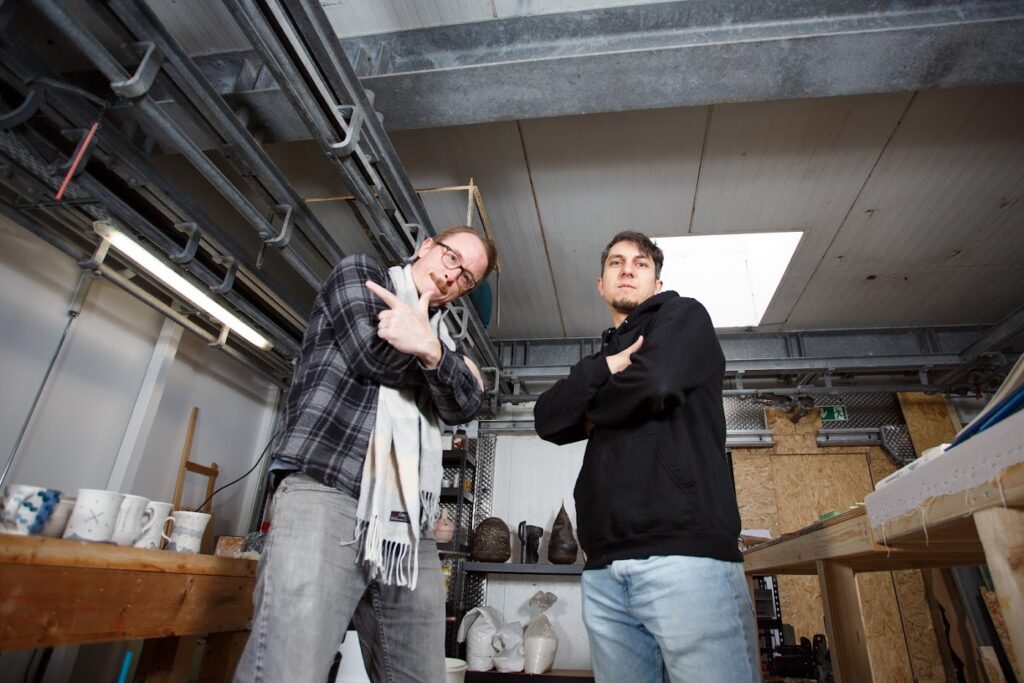
For founders with no marketing or comms background or experience, what would be your advice before launching into the storytelling journey?
Sales, advertising, and marketing (most of it) are all areas in which a business can largely control the narrative, and businesses should do everything they can to control these channels effectively. But once you start working with the media, you start to give up a part of your narrative to public discourse. Are you ready to lose some of that control? We see a lot of founders gripping too hard. We want to control PR too, but our work is ultimately in the hands of journalists, publications, event organisers, podcast hosts, and other storytellers.
Journalists are busy and usually under-paid, so it’s critical that you help make their jobs easier and definitely not more difficult. In my experience, journalists are not at all interested in being sold your product. They want to report to their readers what might be newsworthy. Understanding how to provide journalists with high quality, newsworthy stories while also forwarding your business’s key messages – this is one of our specialties. And the best way to control the narrative here is by being helpful, not pushy or salesy. That also reveals a fundamental aspect about PR – for startups it’s a trust enhancer rather than a sales channel. For sales, you have performance marketing and your sales teams.
Not to boast, but many of your clients have been in the likes of TechCrunch, VentureBeat, Sifted, The Next Web and other sought-after publications. Whilst a lot of clients come to agencies to get into those publications, what needs to actually go into securing those?
It’s true that luck has found us a number of times! But luck has always found us busy at work. We can’t predict how a media outreach will end up, and we work hard to manage those client expectations. Still, it’s always a magical feeling to secure a top-tier story.
I think we do a good job of selecting interesting clients who have good stories to tell. If that element is in place, the PR work feels like it gains some kind of momentum. These businesses are inventing new products and processes, harnessing large sums of capital, creating jobs and new partnerships. The key word is “newsworthiness”, and together with these attributes, startups need to demonstrate it with traction. Our job is to exploit it as much as possible in a consistent way.
I think we’re lucky to have worked with so many good ones, and it’s one of the coolest aspects of working with startups. These stories are real-time, the hierarchies are typically flat, and everyone’s work has an impact.

What have been some of your favourite wins of the last few years?
This is the part where I mention as many clients as possible, so they can get another link. We’ve had some great wins with Credolab, Mindgard, Moth Quantum, myTU, Origin Robotics, RedTrack, Klaus (acquired by ZenDesk), Modash and Flowstep, to name a few.
I think it would be more descriptive to say that I can count on one hand how many campaigns were simply duds. We almost always create great PR experiences for our clients.
I will give a special mention though to the work that Origin is doing in Ukraine. Given that my PR partner is living in Kyiv, working with this client has an urgency that motivates us.
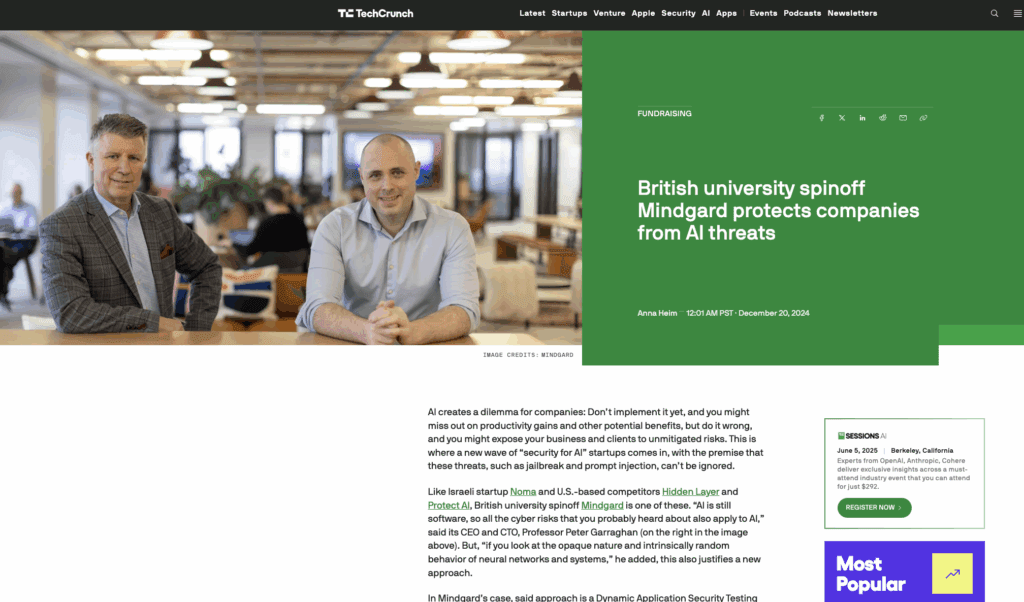
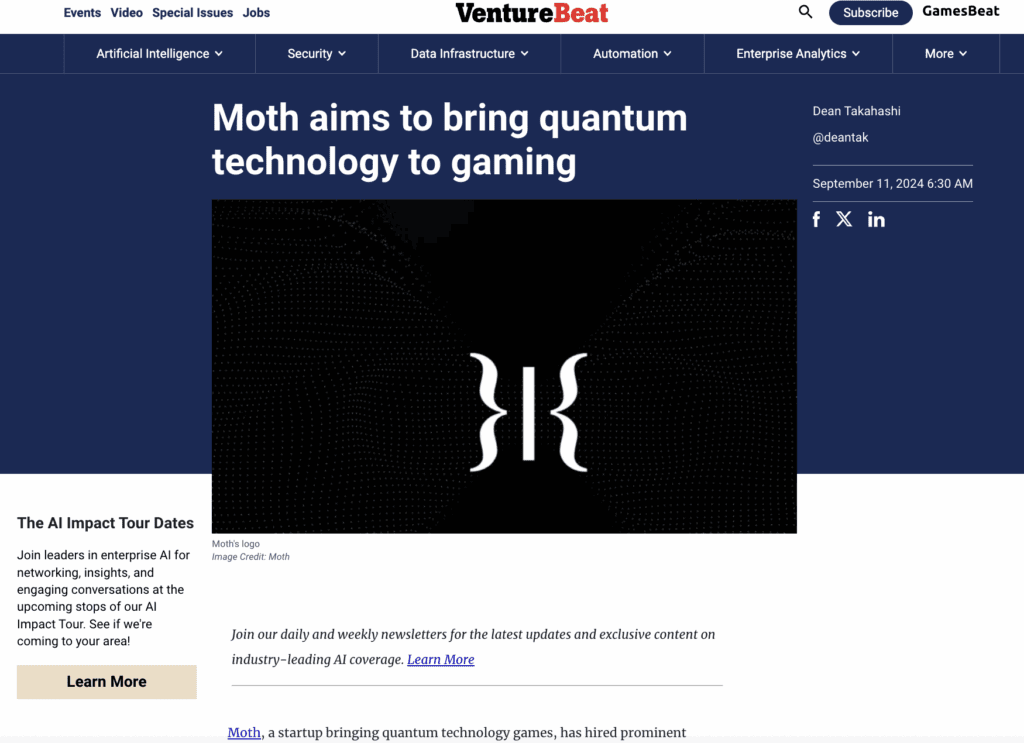
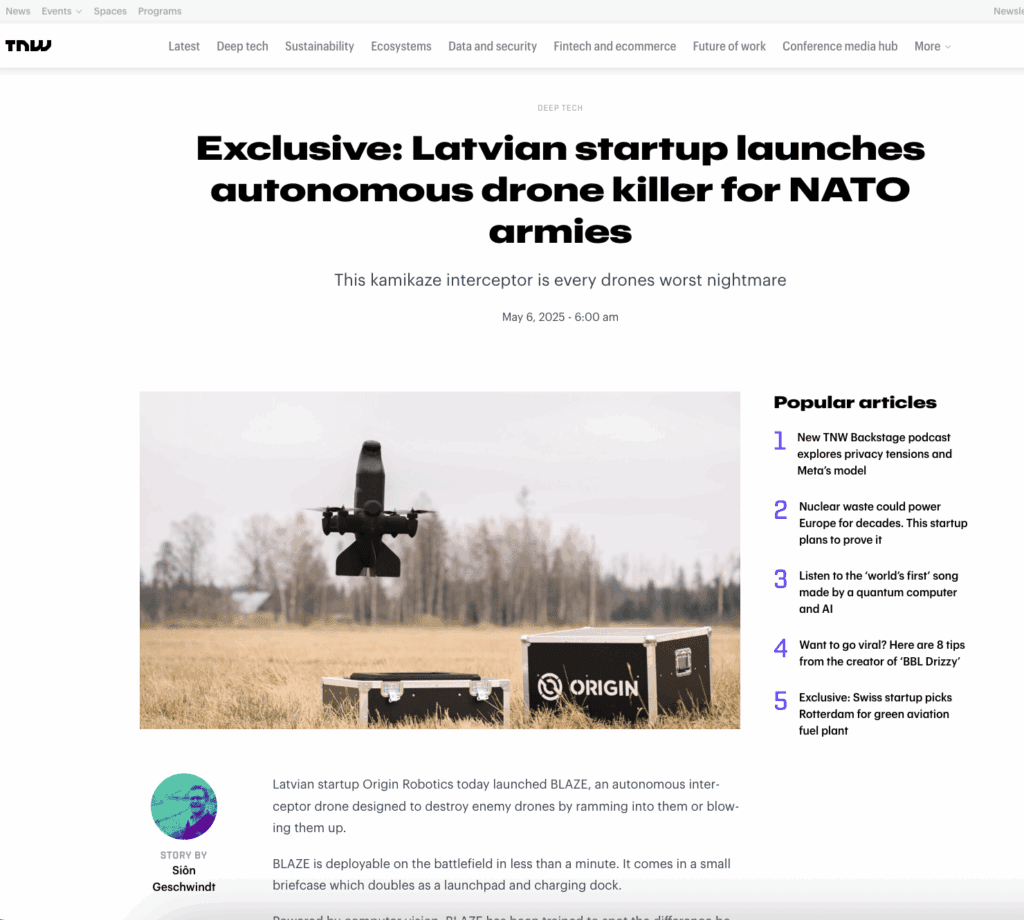
You’re based out of Germany and working with startups from across Europe, with colleagues from across Europe. How do you make remote work?
Honestly it can be difficult. I think I would enjoy more daily contact with humans. But the advantages with flexibility and focus are also significant. My commute is whatever I want it to be!
The nitty gritty of our work is our digital infrastructure. These are mostly off-the-shelf apps and tools, but we’ve customized them and adapted them to work exactly how we need them to. I think some of that is our secret sauce right? We built some great systems to execute the work like this, so fragmented from one another. PR is like a craft in some ways, and we have good tools.
But whatever we’re doing particularly well as an agency is because of the team we have. There’s some magic here I think in how we complement and push each other. It’s a supportive environment but we also keep high expectations for each other. And we have a rule that started as kind of a joke – “No A**holes” – but I’ve never seen us go back on that rule! We might have even fired a client or two based on the rule (mental health of the team comes first).
We also meet in person once in a while, imagine that! There have been some amazing trips to Vilnius. The Brussels edition of Tech.eu Summit was a bit of a lost weekend. I’m also lucky to get to bounce ideas off of other PRs from the startup universe – special shout out to our PR network: CEW Comms, SoContent, Eric Ebert, Hyperfocal, Topic PR.

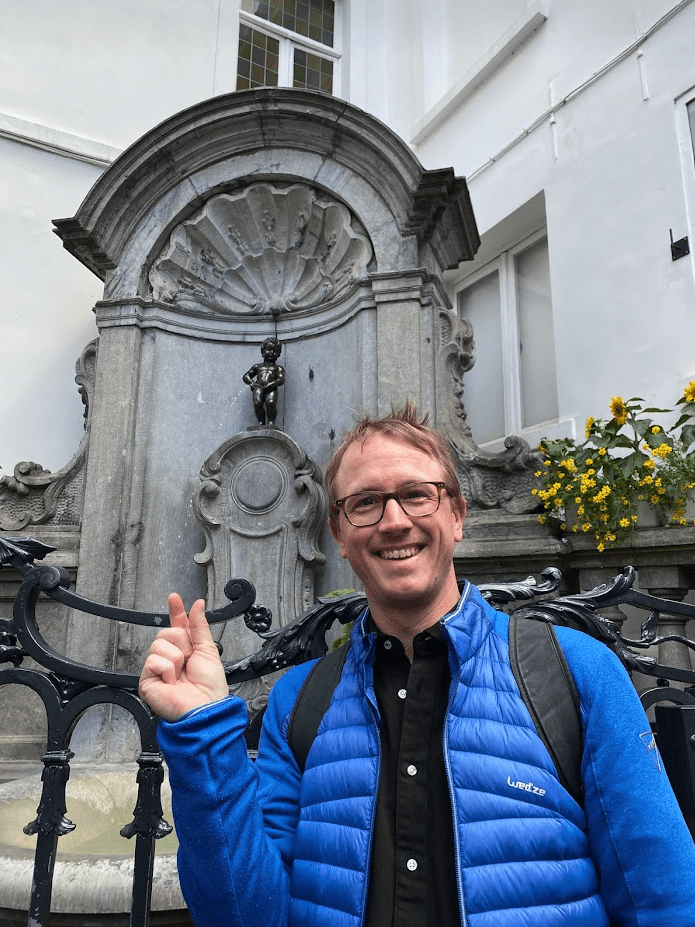

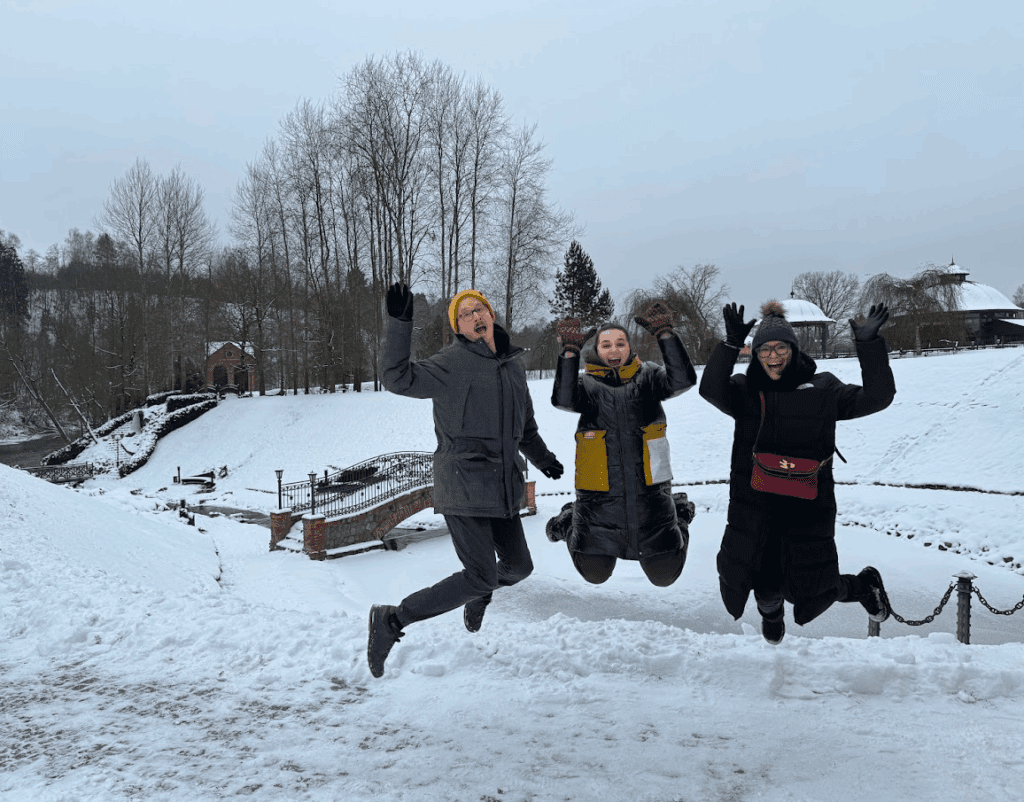
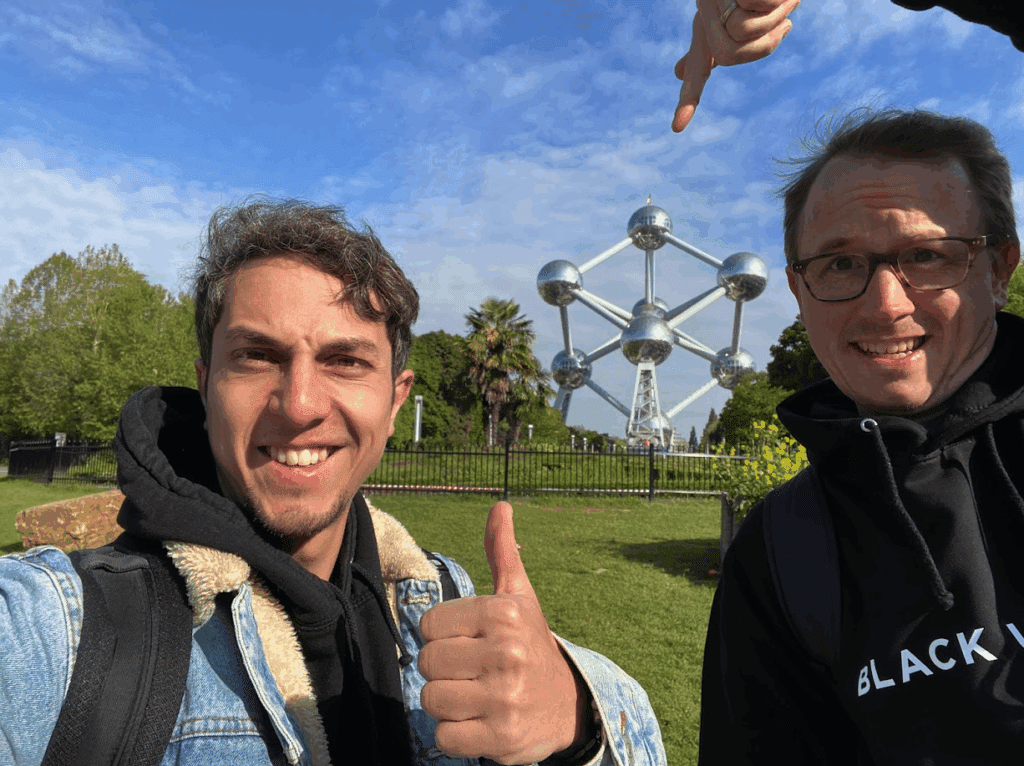
You came from outside of marketing / comms and worked in PR only for a brief period, just before joining BUPR. From what you’ve learned, what would your advice be for PR newbies, particularly in the world of tech and startups?
Try to find a photo of the person you’re pitching. Think about what you would say to them face to face at a dinner party or something. Then type that as an email and send it. One follow-up is usually plenty. PR used to be a hand-shaking, face-to-face kind of career, and I think we need to always remember that there is a human on the other end of that email (hopefully).
Take scrupulous notes with clients. Review these notes and try to really listen to what they want. Never have a call without an agenda. Be transparent. Don’t be afraid to be annoying to your clients if it’s in pursuit of placements. Be the one who cares about the project and makes it urgent.
Lastly, try to have a PR partner-in-crime who is a total ace. Mine is Nataliia and I hope she never leaves!
More from the BUPR team:
